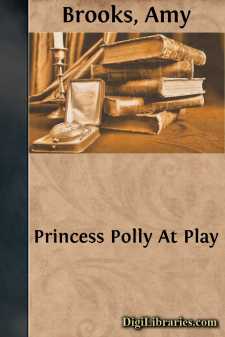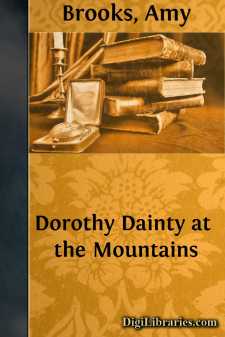Categories
- Antiques & Collectibles 13
- Architecture 36
- Art 48
- Bibles 22
- Biography & Autobiography 813
- Body, Mind & Spirit 142
- Business & Economics 28
- Children's Books 17
- Children's Fiction 14
- Computers 4
- Cooking 94
- Crafts & Hobbies 4
- Drama 346
- Education 46
- Family & Relationships 57
- Fiction 11829
- Games 19
- Gardening 17
- Health & Fitness 34
- History 1377
- House & Home 1
- Humor 147
- Juvenile Fiction 1873
- Juvenile Nonfiction 202
- Language Arts & Disciplines 88
- Law 16
- Literary Collections 686
- Literary Criticism 179
- Mathematics 13
- Medical 41
- Music 40
- Nature 179
- Non-Classifiable 1768
- Performing Arts 7
- Periodicals 1453
- Philosophy 64
- Photography 2
- Poetry 896
- Political Science 203
- Psychology 42
- Reference 154
- Religion 513
- Science 126
- Self-Help 84
- Social Science 81
- Sports & Recreation 34
- Study Aids 3
- Technology & Engineering 59
- Transportation 23
- Travel 463
- True Crime 29
Helen Grant's Schooldays
by: Amy Brooks
Description:
Excerpt
CHAPTER I
HELEN
It had been a great day for the children at Hope Center the closing day of school, the last of the term, the last of the week. The larger boys and girls had spent the morning decorating the "big" room, which was to be the assembly-room. At the Center they were still quite primitive. There were many old or rather elderly people very much opposed to "putting on airs." Boys and girls went to school together, but they wouldn't have called it co-education. So the main room where various meetings and occasional entertainments were held, was always known by the appellation "big."
It was very prettily trimmed with the shining sprays of "bread and butter," and wild clematis, and the platform was gay with flowers. Seats were arranged on either hand for the graduating class, and the best singers in school. There was a very good attendance. Closing day was held in as high esteem as Washington's Birthday, or Decoration Day. Christmas was only partly kept, the old Hope settlers being an offshoot of the Puritans, and the one little Episcopalian chapel had almost to fight for its Holy days.
The first three seats in the audience-room were full of children in Sunday attire. The girl graduates were in white, with various colored ribbons. The boys' habiliments had followed no especial rule. But they were a bright, happy-looking lot, taking a deep interest in what they were to do. The boys had an entertaining historical exercise. One began with a brief account of causes leading to the revolution. Another followed with the part Boston played, then New York, then Philadelphia, Virginia, and the surrender of Cornwallis; afterward, two or three patriotic songs, several recitations—two distinctly humorous—another song or two, and then Helen Grant's selection, which was "Hervé Riel," a poem she had cut from a paper, that somehow inspired her. Diplomas were then distributed, and the "Star Spangled Banner," sung by everybody, finished the exercises.
Helen was fourteen, well-grown and very well-looking, without being pretty enough to arouse anyone's envy. "A great girl for book-learning," her uncle said, while Aunt Jane declared "She didn't see but people got along just as well without so much of it. It had never done a great deal for Ad Grant."
Helen had a bright, sunny nature—well, for that matter, she had a good many sides to her nature, and no girl of fourteen has them all definite at once. Some get toned down, some flash out here and there, and those of real worth come to have a steady shining light later on. But she never could hear Aunt Jane say "Ad Grant" in the peculiar tone she used without a sharp pang. For Addison Grant was her father, that is if he was still alive, and when Aunt Jane wanted to be particularly tormenting, she was sure he was roaming the world somewhere, and forgetting that he had a child.
Sixteen years before he had come to Hope Center and taught school. A tall, thin nondescript sort of man, a college graduate, but that didn't raise him in anyone's estimation. He was queer and always working at some kind of problems, and doing bits of translating from old Latin and Greek writers, and spent his money for books that he considered of great value. Why pretty Kitty Mulford should have married him was a mystery, but why he should have taken her would have seemed a greater puzzle to intellectual people. They went to one of the larger cities, where he taught, then to another, and so on; and when Helen was seven her mother came back to the Center a hopeless invalid with consumption, and died. Mr. Grant seemed very much broken. No one knew what a trial the frivolous, childish wife had been. He was disappointed at not having a son. He had some peculiar ideas about a boy's education, and he didn't know what to do with a girl. So he left her with her aunt and uncle, and for four years sent them two hundred dollars a year for her keep....









